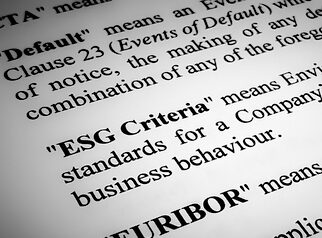
The pandemic & inclusion has brought communities together more than ever.
2020 has undoubtedly been another milestone year for Environmental, Social and Governance (ESG) factors. The impact of the global pandemic, the prominence of issues around diversity and inclusion through the Black Lives Matter movement, and the growing urgency to act on climate change (despite the delay in COP26) have all helped the investment community connect the dots between attitudes and actions, while starting to recognise that we must work together to find solutions to these global issues, taking collective responsibility. Ultimately, there now appears to be a realisation by all investors (whatever their asset class) that ESG activism can lead to a more prepared and better world.
With major developments in ESG taking place, a piece of news highlighted by the Financial Times’ Moral Money deserves some airtime: the creation of the Value Reporting Foundation, through a merger of the Sustainability Accounting Standards Board (SASB) and the International Integrated Reporting Council (IIRC). This will provide companies with an integrated framework telling them what topics to report on, based on a standardised set of disclosure standards.
This consolidation in ESG reporting is welcomed by investors who have been calling for a unified disclosure of standards for some time. The ESG world is infamously known as an ‘alphabet soup’ where the multitude of ESG frameworks (and acronyms) constrain investors’ ability to effectively integrate ESG into their investment strategies.
As we move to greater simplification and standardisation in ESG, there will be more onus on companies to improve their ESG performance and demonstrate these improvements to their investor community and regulators. The inclusion of a fourth financial statement has been mooted, to cover non-financial performance. I feel that this will become part and parcel of how companies chose to disclose performance more generally as stakeholders increase their expectations for transparency and metrics.
Regulators are moving in this direction We have seen new non-financial performance indicators being added to the mandatory reporting list in recent years. Most notably, the Hampton-Alexander Review has focused on board and senior leadership composition since 2016, reporting on gender pay gaps was introduced in 2017, and, looking ahead, all UK companies with a premium listing on the London Stock Exchange will be required to report from 2022 in alignment with TCFD (another acronym: the Task Force on Climate-related Financial Disclosures) on a ‘comply or explain’ basis. There will be more to come here as TCFD gets rolled out across other companies (public and private).
Mandatory reporting on ESG is closer on the horizon for those companies that are publicly listed and many have embraced this already. As BlackRock CEO Larry Fink said in his January 2020 Letter to CEOs:
“All investors, along with regulators, insurers, and the public, need a clearer picture of how companies are managing sustainability-related questions. This data should extend beyond climate to questions around how each company serves its full set of stakeholders, such as the diversity of its workforce, the sustainability of its supply chain, or how well it protects its customers’ data. Each company’s prospects for growth are inextricable from its ability to operate sustainably and serve its full set of stakeholders.”
The call for responsible growth is not just relevant to public entities. All companies must start viewing a fourth financial statement as an integral, even if not mandatory, requirement. Consolidation and standardisation in ESG reporting and disclosure will help all investors identify responsible companies more easily, making non-compliance, non-negotiable.

















